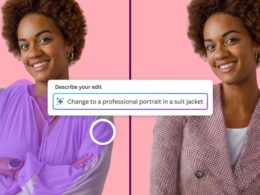Google has once again pushed the boundaries of innovation with the introduction of MusicFX, an experimental tool that allows users to create their own music using AI. This groundbreaking technology combines Google’s MusicLM and DeepMind’s SynthID watermarking technology to produce unique, authenticated musical compositions.
Unlocking the Potential of AI in Music
MusicFX represents a significant milestone in the field of AI by providing musicians, producers, and music enthusiasts with a platform to explore and experiment with music creation. This tool opens up new possibilities and unleashes creativity, but it does come with certain limitations. MusicFX won’t generate music for specific queries involving artists’ names or vocals, as part of a measure to protect original artists’ voices and styles.
A Collaborative Approach to Responsible AI Development
The release of MusicFX is part of Google’s AI Test Kitchen initiative, which aims to involve the public in the early stages of AI technology development. Users in the United States, Kenya, New Zealand, and Australia have the opportunity to experience MusicFX and provide valuable feedback. Google values this collaborative approach as it helps to refine the technology and ensures responsible AI development.
In line with Google’s AI Principles, the company prioritizes responsible AI development and emphasizes the importance of public interaction and feedback. Google recognizes the challenges inherent in generative AI technology, such as the potential for inaccurate or inappropriate responses. To address these risks, Google has implemented multiple layers of protection and safeguards in MusicFX.
“By involving users in the early stages, Google is not only enhancing the technology but also addressing potential ethical concerns proactively.”
Google’s dedication to privacy is evident in MusicFX. The data collected during user interactions is not linked to their Google accounts and is stored anonymously. While human reviewers may access this data for analysis and model improvement, users can delete their data during their session. However, once the session ends, the data becomes non-identifiable and non-deletable, retained for a maximum of 18 months.
The Impact and Implications of MusicFX
The release of MusicFX extends beyond offering a new music generation tool. It signifies a broader trend in AI development, where the public’s involvement in shaping and refining AI becomes pivotal. By democratizing music creation, MusicFX has the potential to disrupt the music industry, providing opportunities for those without formal musical training or access to advanced production tools.
However, the implications of AI-generated music on copyright, ownership, and originality are still being fully understood. Google’s choice to implement watermarking technology demonstrates their awareness of these issues. As AI technology continues to evolve, discussions and regulations surrounding AI-generated content will also evolve.
As Google continues to refine MusicFX in response to user feedback, the AI Test Kitchen serves as a model for future AI development. This collaborative approach ensures that technology progresses alongside societal values and norms, ushering in an era of responsible AI development.
MusicFX represents the harmonious fusion of AI and human creativity. It has the potential to revolutionize the way we create and interact with music. It remains to be seen how this new musical landscape will unfold, but MusicFX could be the first note in a symphony of AI-driven innovation.
If you would like to try MusicFX and other exciting Google Labs experiments, visit labs.google or click here.










